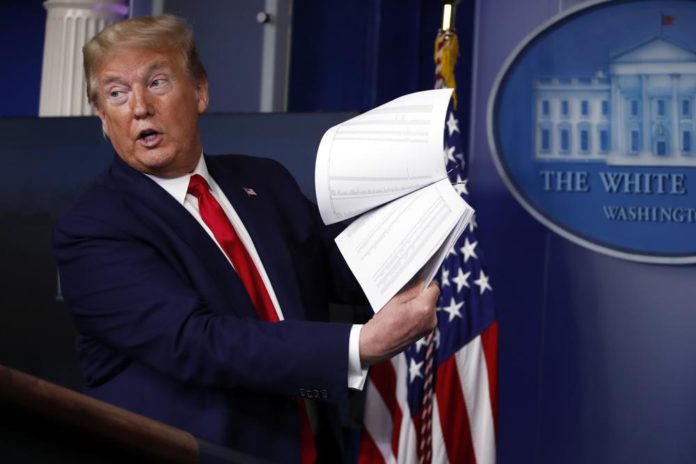
President Joe Biden is ordering the release of Trump White House visitor logs to the House committee investigating the riot of January 6, 2021, once more rejecting former President Donald Trump’s claims of executive privilege.
The committee has sought a trove of data from the National Archives, including presidential records that Trump had fought to keep private. The records being released to Congress are visitor logs showing appointment information for individuals who were allowed to enter the White House on the day of the insurrection.
In a letter sent Monday to the National Archives, White House counsel Dana Remus said Biden had considered Trump’s claim that because he was president at the time of the attack on the U.S. Capitol, the records should remain private, but decided that it was “not in the best interest of the United States” to do so.
She also noted that as a matter of policy, the Biden administration “voluntarily discloses such visitor logs on a monthly basis,” as did the Obama administration and that the majority of the entries over which Trump asserted the claim would be publicly released under the current policy.
A Trump spokesman did not immediately respond to a request for comment on the decision.
The Presidential Records Act mandates that records made by a sitting president and his staff be preserved in the National Archives, and an outgoing president is responsible for turning over documents to the agency when leaving office. Trump tried but failed to withhold White House documents from the House committee in a dispute that was decided by the Supreme Court.
Biden has already made clear that he is not invoking executive privilege concerning the congressional investigation unless he absolutely must. Biden has waived that privilege for much other information requested by the committee, which is going through the material and obtaining documents and testimony from witnesses, including some uncooperative ones.
The committee is focused on Trump’s actions from January 6, when he waited hours to tell his supporters to stop the violence and leave the Capitol. Investigators are also interested in the organization and financing of a Washington rally the morning of the riot when Trump told supporters to “fight like hell.” Among the unanswered questions is how close organizers of the rally coordinated with White House officials.
Investigators also are seeking communications between the National Archives and Trump’s aides about 15 boxes of records that the agency recovered from Trump at his Florida resort and are trying to learn what they contained.
Meanwhile, White House call logs obtained so far by the House committee do not list calls made by Trump as he watched the violence unfold on television on January 6, nor do they list calls made directly to the president.
That lack of information about Trump’s personal calls is a particular challenge as the investigators work to discern what the then-president was doing in the White House as supporters violently beat police, broke into the Capitol, and interrupted the congressional certification of Democrat Joe Biden’s election victory.
There are several possible explanations for omissions in the records, which do not reflect conversations that Trump had on January 6 with multiple Republican lawmakers, for example. Trump was known to use a personal cell phone, or he could have had a phone passed to him by an aide. The committee is also continuing to receive records from the National Archives and other sources, which could produce additional information.
Republished with the permission of the Associated Press.













